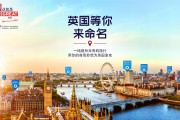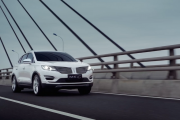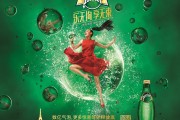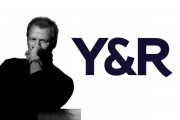One of the most successful Chinese advertising campaigns of this year was “Yulu” or in English “Words Of A Journey“. It was a campaign created for the Diageo owned scotch whiskey brand Johnnie Walker. It had a strong digital and social media focus and was billed as the most ambitious campaign of its type in China to date.
Naturally, chinaSMACK wanted to find out a little more about the campaign. So we caught up with the ad agency behind the work (BBH China) and spoke with its CEO, Arto Hampartsoumian.
Hello Arto, and a very warm welcome to chinaSMACK. You have an interesting surname, where are you from originally?
I’m an Armenian Canadian, born in Egypt. We moved to Montreal Canada when I was a year old… Grew up and studied in Montreal… an amazing little city which combines the best of Europe and Canada.
Why did you want to work in advertising and how did you enter the industry?
It’s been an interesting, non-linear journey into the world of advertising. My first degree was Computer Programming. Yes, Computer Programming. This was before Microsoft became ubiquitous in the world. Wrote in Cobol, FORTRAN, Assembler, RPG and Basic. All now languages in museums next to Sanskrit and Hieroglyphics. After 5 years of being good at something I really did not enjoy, I got out and went back to school to do another degree. Having grown up in front of the TV, I always loved watching the ads.
Another influence was my uncle, who owned a small Agency in Montreal, and who would always say, “you’d be great for this business”. So back to University to major in International Business combined with Honors in East Asian Studies. I studied Mandarin in Montreal, China and Taiwan, and wrote my honours thesis on ‘How Culture affects Advertising in China’. Sent the thesis with a cover note to about 10 Agencies in HK, 4 wrote back to say they would be interested to meet me, but it was Mike Murphy the then, MD of Ogilvy & Mather HK who decided to give this 30 year old a break in advertising and hired me as a junior AE.
The thinking was to get me versed in Ogilvy culture and ways of working, learn hands-on about the ad business and then send me to China a year or so later, well; it took me another 14 years to finally get to China – talk about taking a slow boat.
For how long have you worked in the Chinese advertising industry?
It will actually be 20 years to this month that I’ve been in Asia. I’ve had the opportunity to work with China for a majority of my time here. Whilst at Ogilvy I worked on Seagram’s and Pepsi for Greater China so spent a lot of time here in the early 90’s. With my move to BBDO Singapore, although I was Client Service Director of the Agency, I had the additional responsibility as the Regional Account Director on ICI Dulux, FedEx, Pepsi, and Allianz across the region. With the growing importance of China, I spent a lot of time here with Clients and in focus groups. I have lived and worked in China for the past 6 years.
Your previous agency was W+K Tokyo, how does the Japanese ad industry compare to that of China’s?
Yes it was, and what a wonderful time I had in Tokyo and with W+K. It’s both very different and very similar.
In Japan, the decision to work with an Agency takes time, it’s a long process of getting to know one another, of understanding each other’s brands and cultures, it’s ‘proving’ the difference you can make over a project or two. Once there is comfort in the relationship and the clients decide to work with the Agency, they commit with a long view for the partnership. During my time at W+K, we very rarely had to pitch for business, and the relationships were built off project work and lasted for years.
So in terms of relationships and building trust with clients in China, there are similarities. However there seems to be less of a ‘long view’ for the partnership then in Japan. Having said that, we’ve been blessed thus far in China with a majority of our client partnerships.
Onto your current agency then, how would you describe BBH China in 10 words?
How about in 5 words: When the world zigs, zag.
And to the Johnnie Walker ‘Yulu’ campaign itself. Where did the idea for this campaign come from?
We are very proud of the ‘Yulu’ films. It has been a journey of discovery for us as an agency, challenging ourselves on so many levels. We wanted a campaign that would inspire, that was authentic. A departure from the mostly glossy, manufactured insincerity of the spirits category in China.
On Youtube
On Youku
We needed a campaign that would motivate the younger generation in China, and we could only see ourselves doing this through the eyes of real men and women, telling us their stories of failure, hope and dreams. China’s most influential documentary maker Jia Zhang-Ke was BBH’s partner and a catalyst in bringing these stories to life.
A slight aside, why is whiskey such a popular drink with Chinese people?
Because it tastes so good?
But seriously, China has had a short history with wealth and financial freedom. And initially having whisky showed that you had taste and appreciation of western products and brands, as well as flaunting your success. Ordering a bottle of Johnnie Walker Black or Blue would show your status whilst giving ‘face’ to your guests and importantly to your business associates.
Although whiskey still reflects status, taste and face, it has become a much more mainstream club culture drink. What separates those who flash versus those who know now, are things like knowledge on provenance, understanding the differences between the brands, and the differences of single malts vs. blended – this is the new status.
Then again, where else in the world can you see 6 women in a club standing around a table with 2 bottles of Johnnie Walker Black, the mixes ready for a party night.
Back to ‘Yulu’, what made the campaign so successful?
Successful on many accounts:
A social phenomenon. The ‘Yulu’ films lay bare the aspirations, commitment and depth of a group of young Chinese people who are committed to a new vision of progress in China. It challenges the very core of what success means in China.
An integrated campaign. The films were launched on and offline and spread like wildfire by China’s bloggerati. In 8 weeks they reached 19 million views. The debate that the brand has sparked and framed continues to ripple across China.
Challenging industry norms and mainstream advertising. A departure from stereotypes and a bold step for us and our client – in the mix of people we collaborated with and featured. Because of the success of the films, we have since produced a full length feature film out of the 12 films that has now featured at the Hong Kong, Busan, Tokyo and Vienna Film Festivals.
Why was it so important to position Johnnie Walker as an “authentic” brand?
It was less about positioning Johnnie Walker as an ‘authentic’ brand, it has nearly 200 years of history and is steeped in culture. It was more about going back to what the core values of progress should mean to a rapidly changing China. Since the Olympics and the surge of national pride and confidence, there has been a reevaluation within the target audience and a kind of self-actualization that came post the Olympic euphoria. Their desire to connect on real terms, to set aside the bling and focus on what is genuine.
Xiao Peng’s film
For the first time since we’ve worked with the brand, consumers were confident enough to understand that sometimes setbacks and even failure in the pursuit of your convictions. Dreams and aspirations were not only acceptable but could be celebrated as learning in order for you to Keep Walking.
The stories were told unscripted by real people, some famously successful and others not, but each represented a story of passion, commitment and progress towards their goals. And this authenticity resonated deeply with our consumers.
In what ways did those campaign documentary films reflect today’s culture in China?
We would like to think the ‘Yulu’ films represent the mood of the nation. It is not an insight into Chinese culture, but what’s relevant in China now.
Zhou Yunpeng’s film
The stories tell us that a truly modern progressive China is so much richer, multi-faceted and surprising than the single-minded pursuit of wealth. It’s a confident China, no longer afraid of failure and an acceptance that sometimes there will be set backs in the pursuit of dreams and aspirations.
Chinese celebrity blogger Han Han also played a part in Yulu. On that note, a question many have asked is, who sells more in China – a Western or Chinese celebrity?
I believe it would depend on what is being marketed. The NBA Stars seem to be doing an incredible job for the sports brands, not sure how well Pierce Brosnan is doing for Omega. However generally, the local celebrities would have an edge in mass communications due to familiarity and the ‘semblance’ of credibility they bring.
Recently there has been a general fatigue of celebrities in advertising and the credibility is being put into question, when one celebrity is representing 8-12 different brands and categories.
The Yulu campaign utilized Chinese social media, what impact do you think Sina Weibo and Tencent have had on Chinese people both young and old?
These platforms, and the Chinese digital Space as a whole, have given Chinese netizens a voice, a platform to share their point of view. Consumer investigations such as “Guo Mei Mei” and the recent train crash would not have been possible in the past. Even with digital censorship, news can still be spread at such an incredible speed online. Chinese people now have the tools to enable them to express themselves, voice their opinions and talk about things freely and openly.
However we cannot forget that these platforms were created with entertainment and self-expression in mind. The Chinese (who are even more social online than netizens in the West) now create, consume and share content faster than ever before, giving them the ability to express themselves and create a whole new online identity.
How do Chinese social media platforms compare to its Western counterparts such as Facebook and Twitter?
Government censorship has cultivated local players. Not only has one single local platform risen (in the absence of Twitter, Facebook, YouTube etc.) but several have – in the West you have Twitter. In China you have Sina Weibo, QQ Weibo, Sohu Weibo, Wang Yi Weibo etc all competing with each other.
Although many start as copycats, Chinese platforms have always been more agile in rolling out new features. This is because Chinese platforms predominantly cater solely for the China market rather than a global audience. Interestingly we have begun to see more and more leading innovation come out of the Chinese Digital Space. Douban – the SNS site, which connects people around interests rather than friendships, has a strong presence in this market. We are now seeing Western platforms follow Douban’s lead and put more emphasis on connections around interest, with Google+ being the latest.
Will there be a follow-up to the Yulu campaign?
Yes – watch this space.
Back to you Arto, who inspires you?
So much inspires me. On a macro level, I’m inspired by those who aren’t afraid to challenge the status quo and are willing to stick by their convictions in whichever industry or profession they are in.
On a more micro level my children, my partners and colleagues inspire me daily.
What has been your favourite Chinese ad campaign of late and why?
There have been a few, but one which caught my attention was the Metersbonwe “China’s New Proud’ campaign. This is a great example of a brand identifying a trend, an existing fan community or a market lag, and then championing it with tailor made products and very focused, targeted communications.
Metersbonwe have been able to tap into an emerging passion point for Chinese youth… that of the rediscovering retro ‘classic Chinese label’ brands. As there aren’t really many choices (outside of the well-known Feiyue and Li Ning) Metersbonwe identified the lag in the market and captured the opportunity with the launch of the MTee. The MTee featured designs from Chinese celebrities, pop culture opinion leaders as well as the ability to customize the designs.
This provided Chinese Youth with an opportunity to express their alternative individuality, which sets them apart from their contemporaries sporting mainstream Western brands.
I understand that you launched a Japanese Record Label? So to finish what is your favourite song to sing at KTV?
I along with my then partners John Jay, Sumiko Sato as well as Bruce Ikeda dove into the unknown together to establish W+K TokyoLabs.
I would like to say it would be Numb by Lincoln Park, but more likely to be ‘Show me the meaning of being lonely’ by the Backstreet Boys.
Thank you Arto and xiè xiè.
Click below to like us on Facebook.
.














